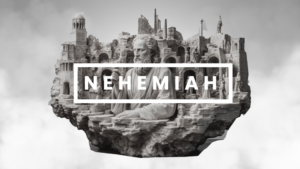The story of Timothy Gray, a homeless man who, despite being heir to a fortune, died disconnected from his identity—illustrates the tragedy of living without understanding our origin and purpose. Our identity, rooted in being made in God’s image, shapes the culture we live in.
The Bible’s radical claim that all humans are made in God’s image was revolutionary, especially in the ancient Near East, where only kings and pharaohs were thought to bear God’s image. In Genesis 1:26-31 and 2:4-25, Moses extends this truth to all people, making humanity God’s representatives on earth, endowed with divine glory and the moral capacity to reign.
1. Being created in the image of God means you are designed
To be made in God’s image means that you are not the result of random chance or cosmic accidents. The Creator intentionally designed you with purpose and meaning. God did not create out of loneliness or need but out of a desire to share His life with His creation. This design speaks to the truth that we have a unique purpose rooted in reflecting the glory of the Creator. From the beginning, God’s design for humanity has been to represent Him and carry out His will on earth, glorifying Him through our existence. Our identity and purpose are intrinsically tied to knowing and living for God. When we understand this, we find clarity in life’s most important questions: Where do we come from? We come from a Creator; we are called to live for His glory because we are designed. As Colossians 1:16-17 reminds us, “all things were created by Him and for Him.” Life is not aimless, and humanity is not an accident.
2. Being created in the image of God means you have dignity
Genesis 1:27 says, “So God created man in His image, in the image of God He created him; male and female He created them.” This intrinsic dignity sets humanity apart from all other creatures. This gives us a dignity that is not dependent on our abilities, achievements, or external circumstances but simply on the fact that we are made in His image. This understanding transforms how we view ourselves and others. It means every human life is sacred and deserves respect, regardless of race, background, or status. Genesis 9:6 tells us, “Whoever sheds the blood of man, by man shall his blood be shed, for God made man in His image.” This truth impacts how we engage with complex societal issues like abortion, slavery, or racial inequality. If every person is made in God’s image, we cannot treat them as mere objects or property. Instead, we are called to honor the dignity of all people, recognizing that each person carries the imprint of the Creator.
3. Being created in the image of God means you have dominion
To be made in the image of God means we are called to exercise dominion over the earth. In Genesis 1:26-28, God commands humanity to “subdue” and “have dominion” over creation. However, this dominion is not about exploiting or abusing the world; it is about stewardship. We are entrusted with the responsibility of caring for and cultivating the earth. Just as a king’s representatives rule with wisdom and care, we are called to reign over creation in a way that reflects God’s character. Our dominion is not about control or oppression but about bringing order and flourishing to the world around us, ensuring that creation operates as God intended. To fulfill this responsibility, we are called to steward the earth, its resources, and all living creatures with wisdom, integrity, and care, honoring God through our work.
4. Being created in the image of God means you are distinct
Finally, being made in the image of God means we are distinct from all other creatures. This distinction is not just physical but also spiritual and moral. We were created with relational capacity—like God, we can know, love, and relate to Him. We were created with the ability to make moral choices and reflect God’s holiness. Furthermore, in our humanity, we are distinct in how men and women bear the image of God. As Genesis 1:27 shows, men and women are made in God’s image but are distinct in their roles and relationships. Our gender, roles, and relational capacities reflect God’s design for creation. Males and females, created in the image of God, are equal in dignity, though different in function. This distinctness reflects God’s nature and speaks to the diversity and harmony He desires to see in His creation. Our distinctness also means that we are called to live out our identities as image-bearers of God, bringing His truth and light into the world.
Conclusion
In conclusion, being created in the image of God means we are designed with purpose, dignity, and responsibility. It means we have dominion over the earth, care for it, and bring it under God’s rule. And it means we are distinct, uniquely made to reflect God’s nature in our relationships, morality, and roles. When we embrace these truths, we live fully into the purpose for which God created us, and in doing so, we bring glory to the Creator who made us in His image. In 1 Peter 2:9, we are reminded that we are “a chosen race, a royal priesthood, a holy nation, a people for His own possession, that you may proclaim the excellencies of Him who called you out of darkness into His marvelous light.” We are made to represent God’s kingdom, to reflect His glory, and to reflect His image to the world. This is the purpose for which we were created.



